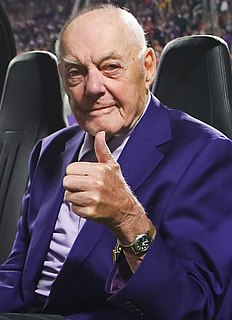A Quote by Malik Yusef
The poet's role has changed over the centuries, the ages. The poets, the griots, used to be the keepers of the facts; they were the story tellers, and the stories were allegorically written truths: where we came from, how we migrated over this river, got with this tribe, became this nation, and tamed the mountains. It changed from that to being purely entertainment. And once it became purely entertainment, it lost something.
Related Quotes
I suddenly became strangely inebriated. The external world became changed as in a dream. Objects appeared to gain in relief; they assumed unusual dimensions; and colors became more glowing. Even self-perception and the sense of time were changed. When the eyes were closed, colored pictures flashed past in a quickly changing kaleidoscope. After a few hours, the not unpleasant inebriation, which had been experienced whilst I was fully conscious, disappeared. What had caused this condition?
Even if that statement was ambiguous, we kind of wanted to cause a stir. We thought that by having the name "Cabaret Voltaire", that with it came a certain responsibility. It wasn't meant to be purely entertainment; it was meant to be something a little bit more serious - and to provoke people - wrapped within an outer wrapping of entertainment.
That literary-popular distinction is, in my view, vastly overstated. At the far poles there are clearly books that are purely commercial and purely literary, written for audiences that want to see the same thing enacted over and over and over again. But the middle is where most people read and most people write.
When the first emperor wanted to unify the country, one of the major policies was to create one system of written signs. By force, brutal force, he eliminated all the other scripts. One script became the official script. All the others were banned. And those who used other scripts were punished severely. And then the meanings of all the characters, over the centuries, had to be kept uniform as a part of the political apparatus. So from the very beginning the written word was a powerful political tool.
Filmmaking is essentially about entertainment, but it's amazing to realize that it has this other muscle that could actually help. Do you know what I mean? People permit entertainment to wash over them, but every once and a while, entertainment - and this is entertaining - also galvanizes something else and that would be a really good thing to have happen in this case.
TARP became so politicized that having money from it was almost like a scarlet letter. There were debates over compensation, worry that the rules were going to get changed. All the banks were desperately rushing to get that money back as soon as possible - in part, so they could pay themselves bonuses without any government restrictions.
Humans are kind of story-propagating creatures. If you think of how we spend our days, think of all the time you spend on entertainment. How much of your entertainment centers around stories? Most pieces of music tell stories. Even hanging out with your friends, you talk, you tell stories to each other. They're all stories. We live in stories.
What [Nietzsche] calls slave morality is to him purely spite-morality; and this spite-morality gave new names to all ideals. Thus impotence, which offers no reprisal, became goodness; craven baseness became humility; submission to him who was feared became obedience; inability to assert one's self became reluctance to assert one's self, became forgiveness, love of one's enemies. Misery became a distinction
As mankind grew obsessed with its hours, the sorrow of lost time became a permanent hole in the human heart. People fretted over missed chances, over inefficient days; they worried constantly about how long they would live, because counting life’s moments had led, inevitably, to counting them down. Soon, in every nation and in every language, time became the most precious commodity.
Japan had a more radical experience of future shock than any other nation in the Nineteenth and Twentieth Centuries. They were this feudal place, locked in the past, but then they bought the whole Industrial Revolution kit from England, blew their cultural brains out with it, became the first industrialized Asian nation, tried to take over their side of the world, got nuked by the United States for their trouble, and discovered Steve McQueen! Their take on iconic menswear emerges from that matrix.
You're sad-looking," she said. "My grandson used to be such a happy boy. He used to write me stories. I remember the first story he ever wrote me, 'Once upon a time, there was a boy.' And that became 'Once upon a time there was a boy who wanted to fly.' And they kept getting better and better over time. I never found out if the boy got to fly." I gave her a small smile. If only she knew the boy's wings had been clipped.








































